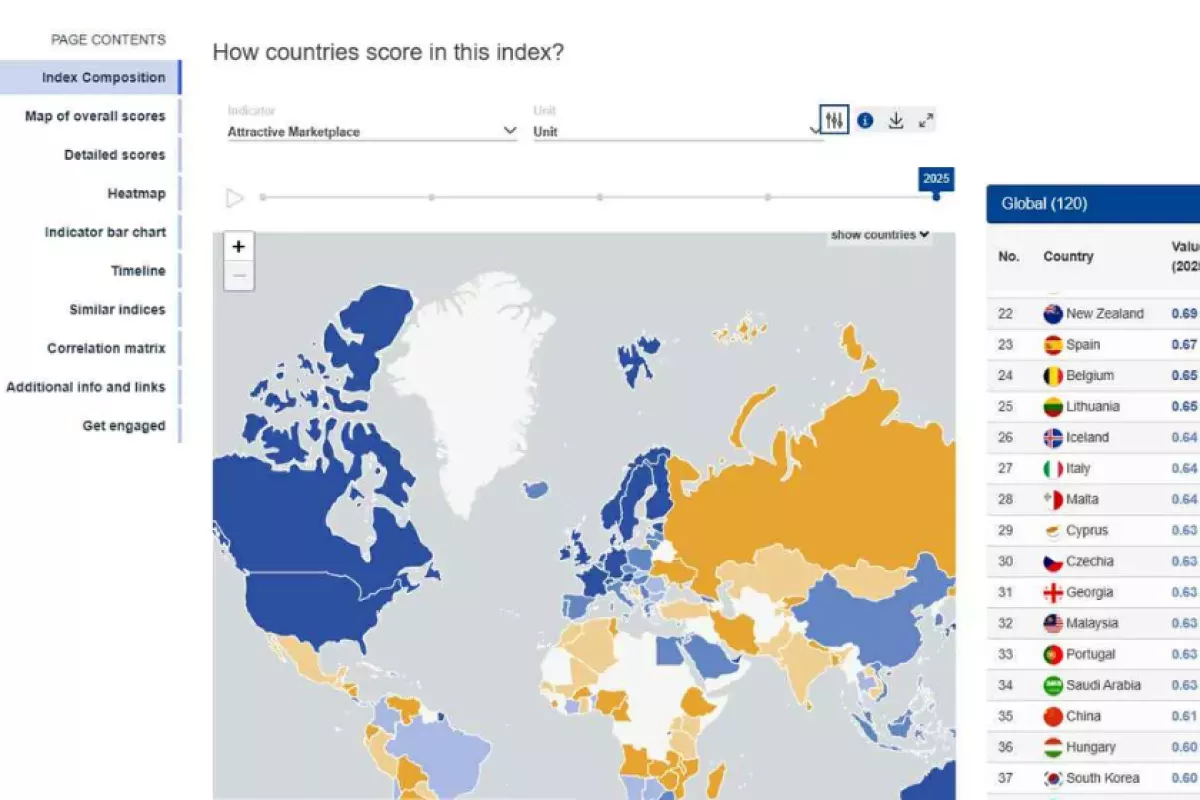Polish response to Georgia's self-reliance End to simplified work access
The first blows from EU countries have been directed at the citizens of Georgia, the “disobedient” state to Brussels. The Polish Ministry of Labour has published a draft regulation according to which Georgian citizens are excluded from the list of countries whose nationals are granted simplified access to the Polish labour market. From now on, this right is only available to citizens of Armenia, Moldova, Belarus, and Ukraine, Wyborcza.biz reports. The Polish Ministry of Labour explained that this decision was made due to the “political situation” in Georgia and the “state of bilateral relations.”

The most notable point: no restrictions are being introduced on the employment of Belarusian citizens, even though Polish-Belarusian relations are extremely tense today — including Warsaw’s deliberate construction of barriers and defensive lines on the border with Belarus. Similarly, Armenian citizens, whose country still does not have a visa-free regime with the EU, continue to enjoy simplified access to work in Poland.
The simplified procedure allows foreigners to work in Poland without a work permit for up to 24 months, upon their employer’s application to the local labour office. According to Polish authorities, by the end of 2024, 26,600 Georgian citizens were insured for work in Poland, making them the third-largest group of foreign workers after Ukrainians and Belarusians. Many Georgians are employed in the transport, logistics, and manufacturing sectors.
From now on, Georgian citizens will need to obtain a special permit to work in Poland, which can be challenging given the Polish bureaucracy. Polish authorities are likely to replace Georgian workers without much difficulty.

It is no coincidence that almost simultaneously with the announcement ending simplified work access for Georgian citizens, news emerged that the Ukrainian government plans to lift current restrictions on the departure of men aged 18 to 22. In the future, if the war freezes and martial law is lifted, other age groups of Ukrainian men may also be allowed to leave. Some of these Ukrainians are likely to seek work in Poland, effectively “replacing” Georgian citizens who have lost the right to simplified employment.
At the same time, Georgian citizens still retain visa-free travel to EU countries, including Poland. However, Polish authorities have publicly indicated their intention to take steps to limit this privilege. In July 2025, Polish Prime Minister Donald Tusk stated that Warsaw would seek the suspension of the visa-free regime for Georgia at the EU level.
There is little doubt that Georgian citizens in Poland will face increasing deportations — both for illegal employment and other violations. Already, discriminatory attitudes toward Georgians are on the rise, and Polish media have published xenophobic anti-Georgian pieces, portraying them as having “elevated criminal activity.”
According to Polish media, of the 8,500 individuals deported from Poland last year for offenses or crimes, 2,600 were Georgian citizens. Considering that an estimated 3 to 4 million migrants from various countries live in Poland, both legally and illegally, roughly one in every three deportees is Georgian.

However, this does not imply any supposed “criminal tendency” among the Georgian population. Polish law enforcement, including the police and border services, have reportedly been unofficially instructed to detain and deport people holding Georgian passports whenever possible.
Given Georgia’s nearly double-digit economic growth and falling unemployment, Georgian citizens are unlikely to experience serious hardship from losing access to the Polish labor market in the long term. Most of those currently working in Poland should be able to find decent employment at home.
Recent European Commission reports indicate that Georgia’s economic situation is steadily improving even without EU membership. Mamuka Mdinaradze, Executive Secretary of the Georgian Dream party, recently highlighted what he described as the EU’s double standards toward Georgia: “The European Union applies double standards to Georgia. The Good Governance Report 2025, prepared by order of the European Commission, clearly shows the progress Georgia has achieved under Georgian Dream.”
Mdinaradze noted that the European Commission under Ursula von der Leyen continues to unfairly criticise Georgia, even though the Chandler Institute of Governance — using data from the UN, World Bank, International Monetary Fund (IMF), World Economic Forum, and other reputable international organisations — documents significant progress on objective indicators.
The report says Georgia scored 63% on the “Strong Institutions” index (out of 100), ranking 34th in the world — above all EU candidate countries and 13 EU and NATO member states.

According to the Attractive Marketplace index, Georgia also reached a historic high — 63.2%, ranking 31st globally and entering the top twenty in Europe. It outperformed all EU candidate countries and 16 EU and NATO member states, including Poland.
On the Leadership and Foresight index, Georgia scored 52%, placing 32nd in the world and 17th in Europe, ahead of 19 EU and NATO member states, again including Poland.
On the Rule of Law index, Georgia achieved 70%, ranking 26th globally and among the top twenty in Europe, surpassing 18 EU and NATO countries, including Poland.
Thus, even the European Commission acknowledges that, by key criteria, Georgia’s economy is in a stronger position than Poland’s. While average salaries in Poland remain higher than in Georgia, closing this gap is only a matter of time. Already, when factoring in housing and healthcare costs abroad, working in Georgia can be more advantageous than employment in Poland.
It is unlikely that discriminatory measures will force Tbilisi to yield to European pressure. Complying with ultimatums would not only risk political destabilization and draw the country into a war with Russia (“a second front”), but also endanger strategic transit projects along the Middle Corridor that drive Georgia’s economic growth. Political and military destabilization would lead to widespread impoverishment and a sharp increase in refugees and labor migrants.
Vladimir Tskhvediani, Georgia, exclusively for Caliber.Az








